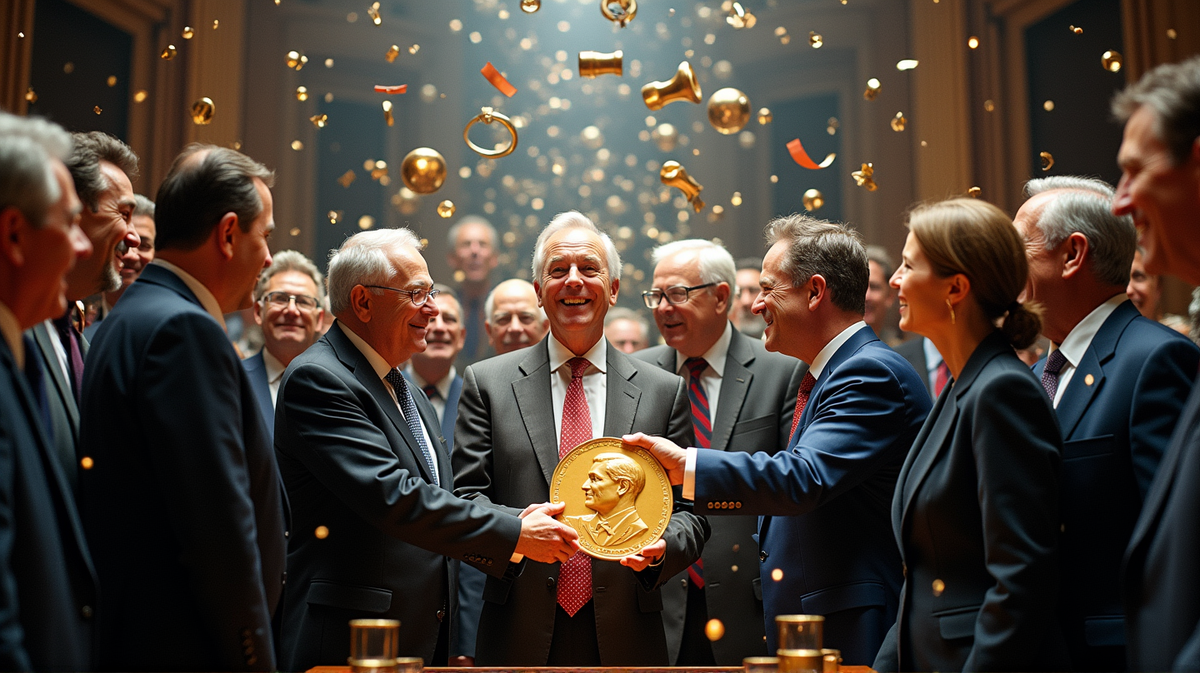Economics Nobel Prize Unleashes a Wave of Innovation Insight
Nobel economics laureates reveal the driving forces behind innovation-led growth, marking a crucial understanding for future economies.

In a celebration of groundbreaking economic thinking, Joel Mokyr, Philippe Aghion, and Peter Howitt have been awarded the Nobel memorial prize in economics. The Royal Swedish Academy of Sciences in Stockholm announced today that these esteemed scholars have been recognized for their pioneering exploration into the realms of innovation-driven growth, a complex yet transformative concept that reshapes our understanding of how new ideas fuel economies.
The Power Trio Behind the Prize
Mokyr, from Northwestern University, along with Aghion of the College de France and the London School of Economics, and Howitt of Brown University, have delved into the mysteries of “creative destruction” – a force through which new innovations replace outdated systems. Their research not only identifies this phenomenon but offers mathematical models that underline sustained economic growth.
The Nobel committee praised Mokyr for his focus on the importance of scientific explanations behind successful innovations, highlighting how understanding not just the ‘how,’ but also the ‘why,’ propels continuous development.
A Glimpse into Scientific Scholarship and Global Perspectives
In his reaction, Aghion expressed sheer surprise and reiterated his dedication to furthering research with the prize funds. As the world grapples with various economic challenges, Aghion cautioned against the rise of protectionism, arguing that open markets are vital for fostering innovation and global prosperity.
Howitt and Aghion’s work, notably their pivotal 1992 publication, provides a robust framework for assessing progress, emphasizing that this dynamic cycle must persist, lest economic growth stagnate.
Honoring the Legacy of Creative Destruction
The notion of creative destruction, famously associated with Joseph Schumpeter, is brought to current relevance through these recipients’ efforts. Their collective insights suggest the need to maintain structures that support this relentless drive toward improvement.
As John Hassler, Chair of the committee for economic sciences, stated, the laureates’ contributions underscore the unpredictability of growth. They advocate for vigilance in preserving the mechanisms that facilitate economic evolution.
A Nod to the Prize’s Origins and Meaning
Beyond the laureates’ visionary research, the award itself – formally named the Bank of Sweden Prize in Economic Sciences in Memory of Alfred Nobel – commemorates the inventor’s enduring impact. Instituted in 1968, it continues to honor those who challenge the status quo with insightful economic analyses.
Standing as another chapter in a long history of excellence, this year’s recognition builds upon the achievements of past laureates. As they receive their prizes, including the coveted gold medal and Swedish kronor, the world takes a moment to reflect on the invaluable advances prompted by their intellect.
According to AP News, continual innovation is the heartbeat that sustains economic vitality, a truth underscored by these recent honorees.
As the curtain falls on this year’s Nobel award festivities, the sensation of discovery and the potential for future breakthroughs linger, inspiring economists and dreamers alike.





